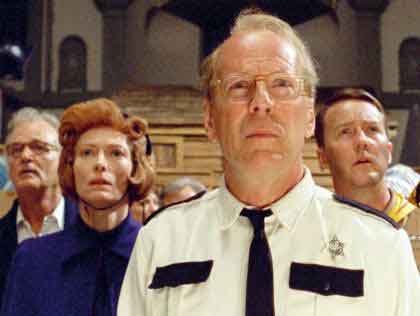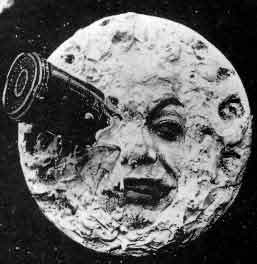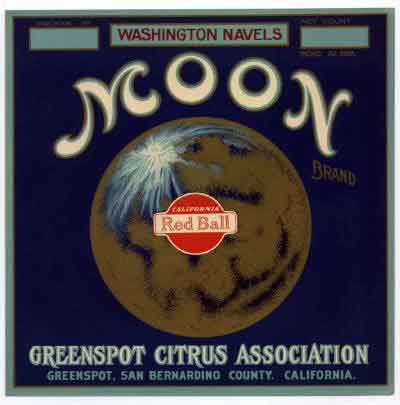Film (2012)
Written by Wes Anderson and Roman Coppola
Directed by Wes Anderson
Original Music by Alexandre Desplat
Cinematography by Robert D. Yeoman
Film Editing by Andrew Weisblum
With Edward Norton (Scout Master Ward), Bruce Willis (Captain Sharp), Bill Murray (Walt Bishop), Tilda Swinton (Social Services), Harvey Keitel (Commander Pierce), Frances McDormand (Laura Bishop), Jason Schwartzman (Cousin Ben), Bob Balaban (Narrator), Jared Gilman (Sam), Kara Hayward (Suzy), Marianna Bassham (Becky)
Sam (Jared Gilman) and Suzy (Kara Hayward) are teenagers on an island off the New England coast. Sam is at a scouting camp and Suzy lives with her parents, Walt (Bill Murray) and Laura (Frances McDormand) Bishop. They decide to run off together.
When Sam is discovered missing from camp, his scout master (Edward Norton) and scout commander (Harvey Keitel), assisted by the local policeman, Captain Sharp (Bruce Willis), set off, with seemingly all the members of the camp, on an expedition to find the missing boy. A large storm is on the verge of erupting, and the powers of nature, and young love, conspire to set the entire island on tilt.
To call this movie “quirky” would be like calling Wagner’s Ring “mythological.” It is so quirky and offbeat – even more so than other Wes Anderson films – that one needs to really get a mental passport into Andersonland in order to enjoy the film. I did enjoy it and found its oddities vividly refreshing, but I could understand it not being to everyone’s taste.
There is a striking abundance of good actors in the film. Anderson is, after all, one of relatively few American directors who succeed in making offbeat, independent gems, and all of these stars – Edward Norton, Harvey Keitel, Bruce Willis, Bill Murray, Frances McDormand, Jason Schwartzman, Tilda Swinton, Bob Balaban – are to be credited with their material support of this particular effort, this director, and this genre.
The acting is executed with ironic distance – as is the case with Wes Anderson films generally – but the troupe carries it off in style.

A key trait of Anderson’s characters is a stoic fortitude that teeters on the edge of disaster. That the dramatic intersections of this film take place, as the narrator tells us at the outset, just before a violently destructive, unanticipated, storm hits, is metaphorically consistent with the psychological dispositions of the characters.
The cinematography is strikingly and effectively styled. Almost every shot seems carefully conceived and has, noticeably, an element of graphic balance within it. That balance echoes the odd balance the characters display, frequently a bit forced, and always threatened with disruption.
The sound track is also fascinating, depending heavily on, among other things, Benjamin Britten’s A Young Person’s Guide to the Orchestra.
Correspondingly, the editing is expertly done, with a crispness of dramatic sequencing that brings the distinctive cinematography into relief, delivering a sense of a visual ballet in which one scene sets it balance and dissolves rhythmically into the next. The musicality of this sequencing becomes readily apparent, and it is no surprise, in the end, that the Britten Young Person’s Guide to the Orchestra provides an underlying reference to the aesthetic of the film itself.
Similarly, but with a slightly different twist (so to speak), in A Serious Man (2009) by Joel Cohen and Ethan Cohen, a devastating tornado figures in the culminating events of the film but no narration prefigures it.
The charm of Anderson’s films, which presumably draw so vividly from similar emblems of his own childhood, is his capacity to pull such references off with broad enough feeling that they do not seem preciously ingrown. Anderson has a capacity to invite us into his very personal memory and to make us feel right at home, or as much at home as one can in his particular variant of Wonderland.
Set in the 1960s, the film is, in one of its dimensions, a send up of the presumed ordinariness of the era. One might well remember Ozzie and Harriet or Father Knows Best as the domestic emblems of that age, parading a subdued conventionality as its watchword.

Coming in like a wild dancer from the wings, Moonrise Kingdom turns that notion on its head, depicting the presumably settled domestic embrace of the age as far more fraught, and the addition of a passionate and determined imagination as its ultimate saving grace.
This indeed is the key to the film. That powerful forces eventually yield to imagination and magical thinking provides for the singular places where the longing heart can find some rest.
Moonrise’s young hero, Sam, much like Max, the protagonist in Anderson’s great earlier film Rushmore, gets batted around the brutally mechanical systems of civilization, until he finds fulfillment in the products of his imagination. And, along with that, he finds solace in love, and in the hands of adults who recognize that the most human parts of the world operate under rules that need to be stretched.
Here, as Captain Sharp, Bruce Willis admirably fills that role of Sam’s sympathetic elder, analogous to the role of Herman Blume, which Bill Murray played to Jason Schwartzman’s Max in Anderson’s masterful Rushmore (1998).

Gilman’s Sam indeed looks much like the younger version of what Schwartzman’s Max might have been. It is not off base, I presume, to think of this as a continued piece of Andersonian autobiographical extrapolation.
But the bizarreness and irony in Moonrise Kingdom supersede even that in Rushmore. What, in Rushmore, strains to break rules, here in Moonrise Kingdom takes over entirely. A dadaist coup occurs, and wonderful chaos, anarchy and illogic reign.
Some might complain that this realm is so unbelievable that it does not create empathetic characters. I would strongly disagree. I think that by jarring the settled world of the sixties and turning it on its end, Anderson has made possible the emergence of characters who shine from the rubble. Out of that set of odd disasters, true love, fellow feeling and self-respect rise up like realized forms in a cubist painting. And we see them entirely anew specifically because of the way the artist has chosen to break things apart.

by Georges Méliès
Though her talents are severely underutilized, it is a total pleasure and entire surprise to see esteemed Boston actress Marianna Bassham play the role of Becky in this film. It is an almost entirely silent part, but Bassham manages to convey distinctiveness of character in whatever she does. I have seen her shine in many Actors’ Shakespeare Project productions, notably in Twelfth Night last fall, and recently in The Luck of the Irish at the Hungtington Theatre Company. Hopefully, Anderson will recognize the range of her talents and exercise them more fully in future films.
– BADMan

Leave a Reply